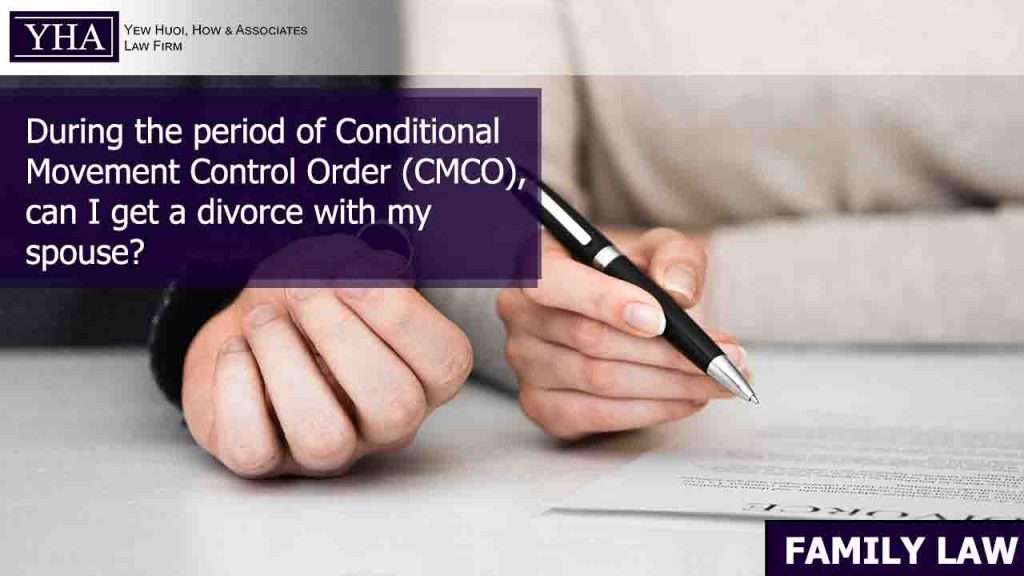Yes, you can get a divorce with your spouse during the period of CMCO. However, for a decree nisi granted by the Court, it may take up to 3 months (joint petition) and depending on the length of the trial (single petition).
You must also be married for at least 2 years before a divorce petition can be filed. However, there are a few exceptions to this rule. These exceptions are hardship, conversion of your spouse to Islam or other exceptional circumstances.
During the pendency of the divorce proceeding, what can I do if:
- My spouse took my child from me; or
- My spouse molested me?
You can make an application to the court for interim interlocutory injunction to refrain your spouse from taking your child from you and getting near you.
What is an interim interlocutory injunction?
An interim interlocutory injunction is a restraining order to prevent your spouse from taking your child from you and to get anywhere near you.
Can i still apply for interim interlocutory injunction during period of CMCO?
Yes, we can file in certificate of urgency to the Court to have the matter expedited.

